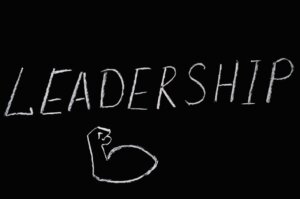If I think about “Leader” as a job description I get confused. How can anyone “Lead” all the time? How exhausting! A sure recipe for failure! An invitation to the dread-disease BURNOUT. Don’t you at least need to “manage” your own schedule?
What about “Management” as the complete and total sum of what you do each day? UGH. How can we make the world a better place if you just sit (or walk) around and manage?
When it comes to leadership: I want verbs. I want action. I want improvisation. I want intervention. I want the possibility of real change. Rather than “best-practices” let’s see some brand-new-never-been-tried-in-quite-this-way-might-even-fail practices.
Organizations need leadership AND management.
To lead is to take risks on behalf of purpose and the greater good. To manage is to mitigate risk on behalf of the bottom line. A successful organization does both. A successful executive does both. A valuable employee at any level of the organization does both.
Leadership requires the willingness to try something new, the willingness fail once in a while, and the foresight to minimize the impact of your failures.
Management is the every day work. If you already know how to get the results that you want, that’s management. If you have practices in place (i.e. for helping employees feel connected appreciated, cared for and linked to the larger vision of the organization) that’s management. If you have a system in place, you are managing. If you are 90% sure that when you do THIS, the result will be THAT, you are managing.
Jumping off the leadership cliff.
When you step into uncharted territory on behalf of purpose, you are attempting to lead. When you hold steady under criticism, you may be leading. When you invite ideas that conflict with your own, you may be leading. When you assess risk and design low-risk experiments with the end firmly in mind, you are attempting to lead.
After my last blog post, a reader responded with a comment and an important question that this post has done little to answer. (Sorry, Meredith!) She wrote: “ ‘Countless, individual acts of leadership’ – that’s a scary phrase for many who want someone else to tell us what to do. What are some of the acts of leadership that have been tried, what else might there be to try?”
I’ll offer more specifics in future posts. MEANWHILE, please entertain the possibility that my suggestions may never be as valuable as your own answer to these these two questions:
- What do I care about so much that I am willing to intervene?
- What is a low-risk experiment that might help the group make progress on what I care about?
 Sections of this topic
Sections of this topic
















